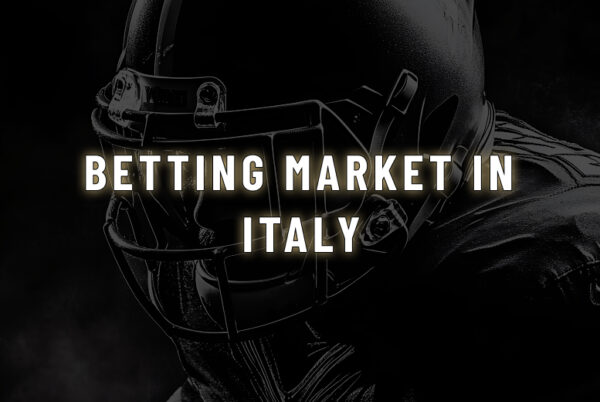

Italy stands out as one of the most advanced countries in terms of gambling regulation—particularly for online casinos and sports betting. In many other nations, regulatory systems are less rigorous, offering users less protection and creating a riskier, more unregulated environment. That’s not the case in Italy: everything is tightly regulated, monitored, and filtered by a system that—regardless of personal views—is considered among the strictest and most protective in Europe.
This guide is not an invitation to gamble, nor is it a practical manual. It’s more of a map or compass. If you’re interested in understanding how betting works in Italy—legally, technically, institutionally—you’re in the right place.
Italy’s system centers around one authority: ADM (Agenzia delle Dogane e dei Monopoli). This state agency issues licenses, enforces regulations, conducts inspections, and imposes sanctions. There’s no room for opaque operators: you either comply with ADM regulations or you’re operating illegally in Italy.
As of 2025, after the introduction of Legislative Decree 41/2024, the regulatory landscape changed significantly:
These are enormous figures—the most expensive licensing system in Europe—designed to restrict access only to technologically advanced, reliable, and financially stable operators.
Key rules introduced or maintained under this new framework include:
This legislative approach has reshaped the market: several established operators (e.g. Unibet, Betclic, Giochi24) withdrew in 2025, citing unsustainable industry conditions.
The outcome, on paper and in the hopes of consumers, is a controlled, transparent, interconnected system, where every play, transaction, and identity is verified. Platforms licensed by ADM must meet uptime, data protection, AML, and system security standards comparable to financial institutions.
In 2025, a total of 46 operators received ADM licenses valid from 2026 through 2035. Some hold multiple licenses, but each portal must correspond to a single gaming site. The official, updated list is available on the ADM website.
Here are some of the major operators currently authorized to offer online betting in Italy under ADM licenses:
All licensed operators must display the official ADM logo and license number on their website (usually in the footer, sometimes at the top). Any operator missing this credential should be avoided.
Taken together, Italy offers a hybrid model: fully compliant with EU guidance, yet more stringent at the national level—a benchmark in the EU gambling landscape.
Every user opening a new ADM‑licensed account must immediately set a weekly deposit limit. Platforms also must offer customizable tools, such as:
These rules are designed to foster responsible play before engagement begins.
Users can auto‑exclude for 30, 60, 90 days, or indefinitely. Once listed, access is blocked across all ADM platforms simultaneously, enforceable in seconds using SPID or CIE. Revocation is only possible after 6 months for indefinite closures. This is considered a best practice in European regulation.
ADM sites cannot allow pseudonyms. KYC must be completed within 30 days, or the account is suspended or closed. Verification can be manual or automated—with SPID/CIE federated confirmation being instantaneous.
All ADM platforms must display:
Since 2025, each licensee must fund responsible gaming campaigns—even though gambling advertising is banned. This paradox reinforces the goal: to inform and prevent harm, not to advertise.
All financial activity—deposits, withdrawals, PVR transactions—must be traceable. No anonymous cards, no third-party funding. Each gaming account must:
This guarantees fraud protection, anti-money laundering, and overall transparency. ADM also mandates ISO/IEC 27001 certification for operators to ensure secure data management.
If an ADM licensee fails or loses its concession, player funds are protected via guarantees covering:
Even in case of operator insolvency, players are not exposed to the risk of losing funds.
The Italian system is complex, selective, and highly regulated—by purposeful design. Since 2018, following advertising bans and licensing reform, Italy has built an ecosystem where freedom to play exists—but only within a clearly defined framework. Few operators, intense oversight, zero marketing.
The result? A system prioritizing protection over performance. Players are considered people first, customers second.
Yes—only on platforms licensed by ADM. All other operators, even if licensed abroad, are considered illegal in Italy.
Look for the ADM logo and concession number in the website footer, or consult the official list on adm.gov.it.
Risks include confiscation of winnings, no legal protection by Italian authorities, lack of transaction traceability, and potential payment blocks.
Yes. You can register on the unified RUA registry via SPID or CIE. The exclusion applies to all ADM sites simultaneously.
Due to the high license cost (€7 million) and the total advertising ban, only the most robust, well-funded companies remain competitive.